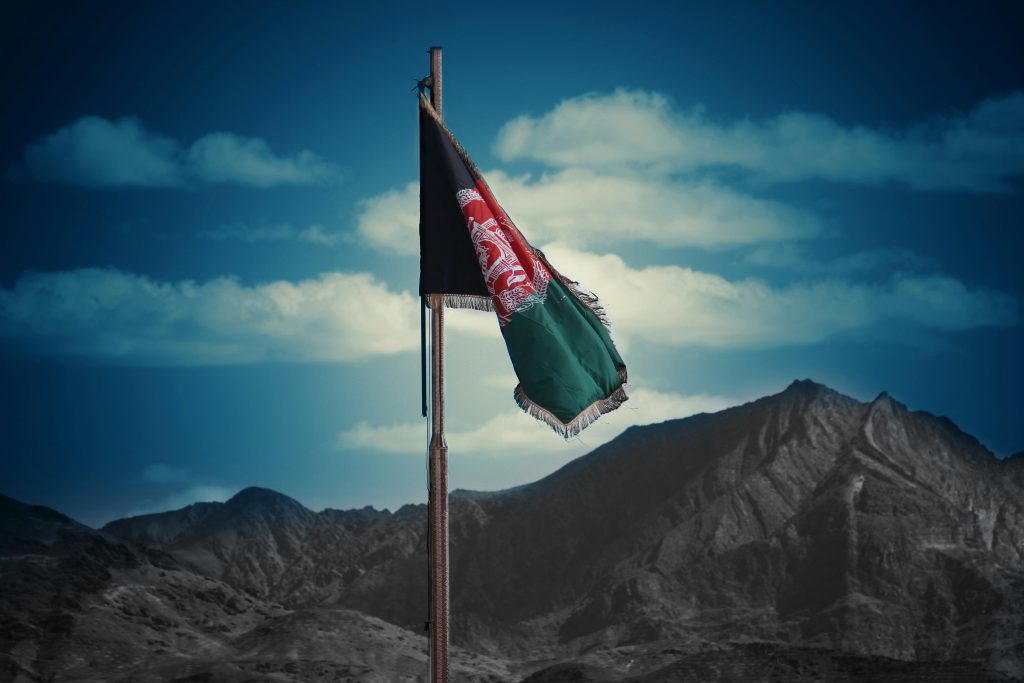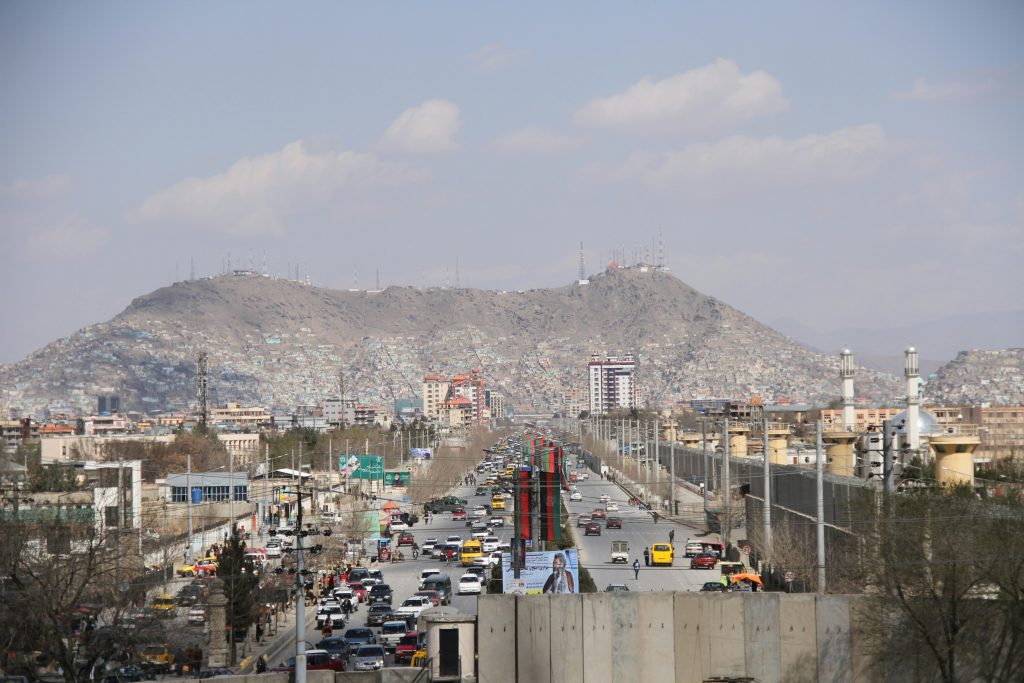
As an Ahmadi Muslim, when one thinks of Afghanistan, two great people come to mind. Hazrat Sahibzada Abdul Lateef Sahib Shaheed (may Allah be pleased with him) and Hazrat Abdur-Rehman Sahib Shaheed (may Allah be pleased with him). These two companions of the Promised Messiah (peace be upon him) were the first Ahmadis to have the honor of embracing martyrdom. There was also a third, lesser-known missionary of the Ahmadiyya Muslim Jamaat to be martyred in the land of Afghanistan.
Maulvi Naimatullah Khan Sahib, son of Amanullah, was a resident of a village called Khauja Tehseel Rakha Zilla Panj Sher1, which was situated near Kabul, Afghanistan. After becoming an Ahmadi, he traveled to Qadian in pursuit of knowledge where he was admitted into Madrasa Ahmadiyya. In 1919, while Maulvi Naimatullah Khan Sahib was still a student in Madrasa Ahmadiyya, Hazrat Musleh Maud (may Allah be pleased with him) instructed him to return to his homeland to teach and train the Ahmadis of Afghanistan.
At that time, Ahmadis were not free in Afghanistan to practice their religion, so Maulvi Sahib would teach the Afghani Ahmadis individually. Around this time, on the 20th of February 1919, Ameer Habibullah Khan, King of Afghanistan, was killed. The next to take up the throne was Ameer Amanullah Khan who soon after becoming the King announced that there would be freedom of religion for all people in his kingdom.2 Following this announcement, in August 1919, Hazrat Musleh Maud (may Allah be pleased with him) sent Naik Muhammad Khan Sahib Ghaznawi along with some other men to meet a delegation that had come from Afghanistan under the leadership of Mehmood Tarzi Sahib, the foreign minister of Afghanistan, that had come to England to create a treaty. Hazrat Musleh Maud (may Allah be pleased with him) did this to gain some insight about the current policies in Afghanistan, specifically inquiring about two main things:
1. Was there freedom of religion for Ahmadi Muslims?
2. Could those Afghani Ahmadi Muslims who had migrated to Qadian return to Afghanistan?
In this Afghan delegation, there was a Hindu who was serving as Afghanistan’s finance minister. When he discovered that Naik Muhammad Khan Sahib Ghaznawi was the son of Mir Ahmad Khan (the former governor of Ghazni) who had migrated to Qadian at the age of fourteen because he did not have religious freedom in Afghanistan, he began to cry and hugged him saying that your father was my brother.3 He said return to your homeland, I will protect you. Mehmood Tarzi Sahib also made the same promise.4 Tarzi Sahib further made the promise that no Ahmadi would be harmed because the time of cruelty and injustice had passed.
There were two other members of the Afghani delegation who were moved to tears by the story of Naik Muhammad Khan Sahib. They were greatly saddened that the child of such a well respected family was forced to migrate at such a young age leaving all his family, friends, and homeland behind. They said that this would no longer happen in the time of Ameer Amanullah Khan, King of Afghanistan.
The Ahmadi delegation returned in high spirits, considering their trip a success. However, Hazrat Musleh Maud (may Allah be pleased with him) demonstrated great wisdom in remaining cautious and instructing Maulvi Naimatullah Khan Sahib to meet with Mehmood Tarzi Sahib upon his return to Afghanistan. Hazrat Musleh Maud (may Allah be pleased with him) specifically instructed Maulvi Sahib to inquire about the injustice being done upon the Ahmadis of Afghanistan and to seek permission to mention these issues to the King of Afghanistan himself.
There were constant reports being received of Ahmadis being persecuted in different parts of Afghanistan, so according to the instruction of Hazrat Musleh Maud (may Allah be pleased with him), the foreign minister of Afghanistan and the famous Turkish General Jamal Pasha were made aware of the situation through letters.5 The foreign affairs office of Afghanistan responded to these letters stating that “under the leadership of the king of Afghanistan none of your followers have been harmed or have received any punishment from the government and if we are provided with a list of all Ahmadis who are citizens of Afghanistan then it is possible that we may be able to provide assistance to them if they have been harmed.”6
After this correspondence, some Ahmadis faced hardships in Khaust. So, Jama’at Ahmadiyya sent a request to the Afghani government through the Afghani Ambassador to India. On the 24th of May 1923 a response was received that Ahmadis can live in Afghanistan in peace and no one can cause them any harm. They will be protected like all other loyal subjects of Afghanistan. The response also hinted that the King of Afghanistan had been consulted in this matter and that it was according to his suggestions that this response had been written.
Now Jama’at Ahamdiyya was satisfied that there was religious freedom in Afghanistan and Ahmadis could live there freely. However, near the end of 1923 a report was received that two Ahmadis had been jailed by the Afghani government. Just a few months later, in early July 1924, Maulvi Naimatullah Khan Sahib was called by the government, and he was asked whether he was Ahmadi. He responded that he was Ahmadi and upon this truthful statement he was released but soon after he was put in jail again.
On the first of August 1924, Maulvi Naimatullah Khan Sahib wrote a letter to Fazal Karim Sahib Bherwi (who lived in Kabul).7 He described his situation in the following words:
“This humble servant who is a missionary of Islam has been imprisoned for thirty days. The doors and windows of the jail cell are closed and only open for a short amount of time. It is also forbidden to speak to anyone. When I go for ablution, a guard accompanies me. Yet as dark as the jail cell may be, I receive just as much light, and satisfaction of the heart from God the Almighty. Please send this letter to Hazrat Khalifatul Masih (may Allah be pleased with him) and by telegram or by letter, convey the news of my situation to my Ahmadi brothers so that they may pray that this humble servant may be successful in serving the faith. In this jail I constantly pray, that “O God, make this humble servant successful in serving the faith. I do not wish that I may be freed from jail or that I may be saved from death, rather I say that O God may every single fiber of this humble self’s being, be sacrificed for Islam.”8
Maulvi Naimatullah Khan Sahib was presented in court after which concluded on the 16th of August 1924, that Maulvi Sahib was an apostate and was deserving of capital punishment. Later on his case was retried in court and again the same conclusion was reached but instead of capital punishment, the court ruled that Maulvi Naimatullah Khan Sahib would be stoned in front of a large crowd.9
In accordance with this decision, on the 31st of August 1924, the police paraded Maulvi Sahib around the streets of Kabul and announced that this person will be stoned today for the crime of apostasy, and everyone should be present to witness and participate in it. Those who saw Maulvi Sahib at this time witnessed, that when it was being announced that he would be stoned to death, he did not panic or show any sign of fear, rather his only reaction was to smile. He smiled as if it was not the news of his impending demise that was being announced but a declaration of his honor.
At last, at Asr time, people gathered in the ground of Chauni in Kabul, also known as Sherpur to perform the stoning.10 In that moment, as his martyrdom approached, Maulvi Sahib made his final request; that he should be given one last opportunity to worship his Lord in this world. Upon receiving permission from the authorities, he offered his prayers, and upon completing them, he stood up and said, “I am now ready. Do as you will.”
He was buried in the ground up to his waist, and “the most respected scholar of Kabul” threw the first stone after which stones rained down on him from all four sides until he was buried in a pile of stones and was martyred in the way of God. To Allah do we belong, and to Him shall we all return.
At the time of his martyrdom, he showed unmatched loyalty and conviction in his belief. This is attested to by a newspaper based in Kabul which published on the 6th of September 1924 that Maulvi Naimatulah khan Sahib stayed loyal to his beliefs until his last breath and even while being stoned, he kept loudly proclaiming his beliefs.
On the 4th of September 1924, Hazrat Muleh Maud (may Allah be pleased with him) issued a statement to the Jama’at stating:
“O brothers, in this time of sorrow, we cannot forget the duty which has been imposed upon us by our blessed brother, who sacrificed his life for the cause of God. He has started the work which we must go on to complete. Let us resolve in this moment that we will not rest until we conquer the land of these martyrs (meaning until we spread Ahmadiyyat there). The souls of Hazrat Sahibzada Abdul-latif Shaheed (may Allah be pleased with him), Hazrat Abdur-Rehman Shaheed (may Allah be pleased with him) and Naimatullah Khan Sahib shaheed are reminding us of our duties from heaven and I have full belief that the Ahmadiyya Muslim Jamaat will not forget them.”11
Today, 100 years after Maulvi Naimatullah Khan Sahib’s martyrdom, his unshakeable faith provides inspiration to the Ahmadiyya Muslim Jama’at, many of which continue to face such persecution on account of their faith. In the face of an unjust ruler and state, Maulvi Naimatullah Khan Sahib displayed great humility and steadfastness, holding fast to the rope of Allah despite his impending martyrdom. Today, Maulvi Naimatullah Khan Sahib’s courageous memory continues to shine on, just as it is written in the Holy Qur’an:
وَلَا تَحۡسَبَنَّ الَّذِیۡنَ قُتِلُوۡا فِیۡ سَبِیۡلِ اللّٰہِ اَمۡوَاتًا ؕ بَلۡ اَحۡیَآءٌ عِنۡدَ رَبِّہِمۡ یُرۡزَقُوۡنَ
Think not of those, who have been slain in the cause of Allah, as dead. Nay, they are living, in the presence of their Lord, and are granted gifts from Him, (3:170).

Bibliography
1 Al-Fazl September 11th, 1924, Pg 5
2 Al-Fazl 25th October 1924 pg 3
3 ibid
4 Al-Fazl June 14th 1956 Pg 3
5 Al-Fazl October 25th, 1924, Pg 3
6 Al-Fazl September 25th, 1924, Pg 3
7 Al-Fazl September 11th, 1924, Pg 4
8 Al-Fazl September 11th, 1924, Pg 5
9 Al-Fazl September 18th 1924 Pg 5
10 Al-Fazl September 13th 1924 Pg 1
11 Al-Fazl September 11th 1924



